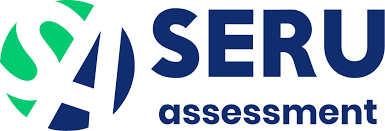Seru exams serve as pivotal moments in various academic and professional journeys, providing individuals with opportunities to demonstrate their knowledge, skills, and competencies. Whether in educational institutions, professional certifications, or licensure examinations, Seru exams play a crucial role in assessing proficiency, evaluating readiness, and determining achievement. In this exploration of Seru exams, we delve into their significance, structure, preparation strategies, and the impact they have on individuals’ trajectories towards success.
Significance of Seru Exams
Seru exams hold significant importance for individuals across diverse contexts:
- Academic Advancement: In educational settings, seru exam evaluate students’ comprehension, mastery of course material, and readiness to progress to the next level of study. These exams may include end-of-term assessments, standardized tests, or entrance examinations for higher education institutions.
- Professional Accreditation: For professionals, Seru exams validate expertise, proficiency, and competence in specific fields or industries. Achieving certification through Seru exams often opens doors to career advancement, job opportunities, and increased earning potential.
- Regulatory Compliance: In certain professions, such as healthcare, finance, or law, Seru exams may be required for licensure or regulatory compliance. These exams ensure that practitioners meet established standards of competency, ethics, and professionalism, safeguarding the public interest and maintaining quality standards within the profession.
Structure of Seru Exams
Seru exams encompass a variety of formats, structures, and assessment methodologies tailored to their specific purposes and target audience:
- Multiple-Choice Questions (MCQs): Common in both academic and professional settings, Seru exams often feature multiple-choice questions, where candidates must select the correct answer from a set of options provided. MCQs may cover a wide range of topics, require critical thinking skills, and assess depth of understanding.
- Essay or Free-Response Questions: Some Seru exams include essay or free-response questions, where candidates are required to construct written responses to prompts or scenarios. These questions allow individuals to demonstrate their analytical abilities, critical reasoning skills, and ability to articulate complex ideas effectively.
- Practical or Performance-Based Assessments: In certain fields, such as the arts, sciences, or technical professions, Seru exams may involve practical demonstrations of skills, performances, or hands-on tasks. These assessments evaluate candidates’ ability to apply theoretical knowledge in real-world contexts and demonstrate competency in specific tasks or procedures.
- Computer-Based Testing (CBT): With advancements in technology, many Seru exams are now administered electronically, allowing for greater flexibility, efficiency, and accessibility in the testing process. CBT platforms may include interactive features, adaptive testing algorithms, and instant scoring capabilities.
Preparation Strategies for Seru Exams
Effective preparation is key to success in Seru exams:
- Understand the Exam Format: Familiarize yourself with the format, structure, and content of the Seru exam in advance to develop a targeted study plan and focus your efforts on areas of importance.
- Review Course Material: Thoroughly review course materials, textbooks, lecture notes, and supplementary resources relevant to the exam content. Take comprehensive notes, create study guides, and organize information in a way that facilitates understanding and retention.
- Practice with Past Papers: Practice answering past exam papers or sample questions to familiarize yourself with the types of questions, time constraints, and level of difficulty. This allows you to identify areas of weakness, refine your exam-taking strategies, and build confidence.
- Seek Additional Resources: Utilize additional resources such as study guides, review books, online tutorials, or exam preparation courses to supplement your study efforts and gain further insights into the exam content.
- Manage Time Effectively: Develop strategies for managing your time during the exam, allocating sufficient time to each section or question while ensuring completion within the allotted timeframe. Practice time management techniques during mock exams or practice sessions to improve efficiency and pacing.
Impact of Seru Exams
Seru exams have a profound impact on individuals’ academic, professional, and personal trajectories:
- Academic Achievement: Success in Seru exams is often correlated with academic achievement, leading to recognition, awards, scholarships, and opportunities for further study or research.
- Career Advancement: For professionals, Seru exams can be instrumental in career advancement, leading to promotions, salary increases, and access to new opportunities or responsibilities within their respective fields.
- Professional Recognition: Achieving certification or licensure through Seru exams enhances professional credibility, trustworthiness, and recognition among peers, colleagues, and employers.
- Personal Fulfillment: Beyond external validation, success in Seru exams brings personal fulfillment, satisfaction, and a sense of accomplishment, affirming one’s abilities, dedication, and perseverance.
In conclusion, Seru exams represent important milestones in individuals’ academic, professional, and personal journeys, providing opportunities for growth, achievement, and advancement. By understanding the significance, structure, and preparation strategies associated with Seru exams, individuals can navigate these assessments with confidence, harnessing their potential to unlock new opportunities, achieve success, and fulfill their aspirations.



